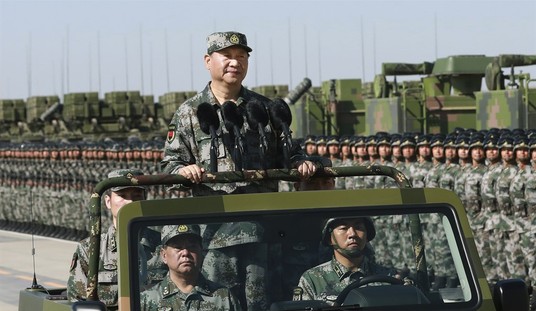Elite opinion on Obama’s attempt to bury the Cold War hatchet with Cuba is shaping up just as you might expect it would.
The New York Times editorial board gushed over the decision, calling it “a bold move that ends one of the most misguided chapters in American foreign policy.”
The Times applauded Obama for doing everything within his power to normalize relations with Cuba within the constraints of a 1996 law imposing sanctions on the Cuban regime. Odd that The Times’ argument against the Cuban sanctions is that they are so “outmoded,” and yet they must concede that they were ratified by the American Congress as recently as the eve of President Bill Clinton’s second term.
The Times editorial board is, as ever, the hobgoblin of little minds.
Just as predictably, The Wall Street Journal editorial board cast doubt on the pragmatism and the timing of Obama’s move.
The problem is that wrapping the prisoner swap into a larger policy shift makes it look like Cuba’s hostage-taking of Mr. Gross paid off. All the more so because Mr. Obama is going out of his way to give formal U.S. recognition to the Castro government that remains one of the world’s most tyrannical.
The benefits for the regime from this new era are obvious. Cuba is starved for cash, and its main patron in Venezuela is teetering as oil prices fall. The country desperately needs hard currency, which is the main reason it exports its doctors to work abroad.
So the dictatorship will cheer Mr. Obama’s decision to allow greater dollar remittances to the island, as well as more opportunities for Americans to travel and invest in “humanitarian projects” and information technology, among other things.
“What’s striking is how little Cuba had to do for such a major shift in U.S. policy,” The Journal observed. “At least Burma’s military government released the leader of the opposition and opened up its political process before the U.S. lifted sanctions.”
Some who are closest to the ground on this issue, like The Miami Herald, seem cautious about the move, although not necessarily cautiously optimistic.
“Raúl Castro told the nation on Wednesday that Cuba agreed to restore full diplomatic relations ‘without renouncing a single one of our principles.’ If those principles include maintaining a chokehold on liberty inside Cuba, the hopes of the Cuban people and the exile community will be dashed once again,” The Herald editorial read. “The appearance on Cuban TV of the nation’s unelected leader in his military uniform, giving a speech containing the usual demagogic rhetoric, was not a promising omen.”
South Florida’s largest newspaper conceded that global consensus opinion favors the normalization of relations between America and Cuba, but it nevertheless insisted that the embargo should remain intact so long as the Castro brothers refuse to adopt political reforms. “All who yearn to see freedom in Cuba can only hope this gamble pays off,” The Herald concluded.
With these powerful political actors heading into their familiar corners, The Washington Post editorial board’s vote of no confidence in Obama’s move came as a shock.
WaPo‘s editorial board is consistently more hawkish on foreign policy matters than are many of its more liberal competitor papers, but it is also generally forward-thinking on issues relating to trade, commerce, and political reforms.
The Post’s editorial is not merely a registration of their disapproval in Obama’s decision, but an indictment. The paper suggests that any progress toward Democracy in Cuba has been arrested by the president’s shortsighted move.
In recent months, the outlook for the Castro regime in Cuba was growing steadily darker. The modest reforms it adopted in recent years to improve abysmal economic conditions had stalled, due to the regime’s refusal to allow Cubans greater freedoms. Worse, the accelerating economic collapse of Venezuela meant that the huge subsidies that have kept the Castros afloat for the past decade were in peril. A growing number of Cubans were demanding basic human rights, such as freedom of speech and assembly.
On Wednesday, the Castros suddenly obtained a comprehensive bailout — from the Obama administration. President Obama granted the regime everything on its wish list that was within his power to grant; a full lifting of the trade embargo requires congressional action. Full diplomatic relations will be established, Cuba’s place on the list of terrorism sponsors reviewed and restrictions lifted on U.S. investment, and most travel to Cuba. That liberalization will provide Havana with a fresh source of desperately needed hard currency and eliminate U.S. leverage for political reforms.
The Post called Obama, and all who back his move as one that will somehow magically catalyze political reforms inside Cuba, “naïve.” What’s more, the paper noted that the Castros decision to release some political prisoners had already been agreed to by the regime in negotiations with The Vatican and Spain four years ago.
“Mr. Obama may claim that he has dismantled a 50-year-old failed policy; what he has really done is give a 50-year-old failed regime a new lease on life,” The Post concluded.
The editorial was deservedly harsh. As it is wont to do, the left is congratulating itself on a political victory here without necessarily consulting those most affected by Obama’s decree. They tell themselves that the history books will recall Obama’s courageous decision to reduce sanctions on communist Cuba with fondness. Perhaps, but not if Cubans are the authors of those history books.







Join the conversation as a VIP Member